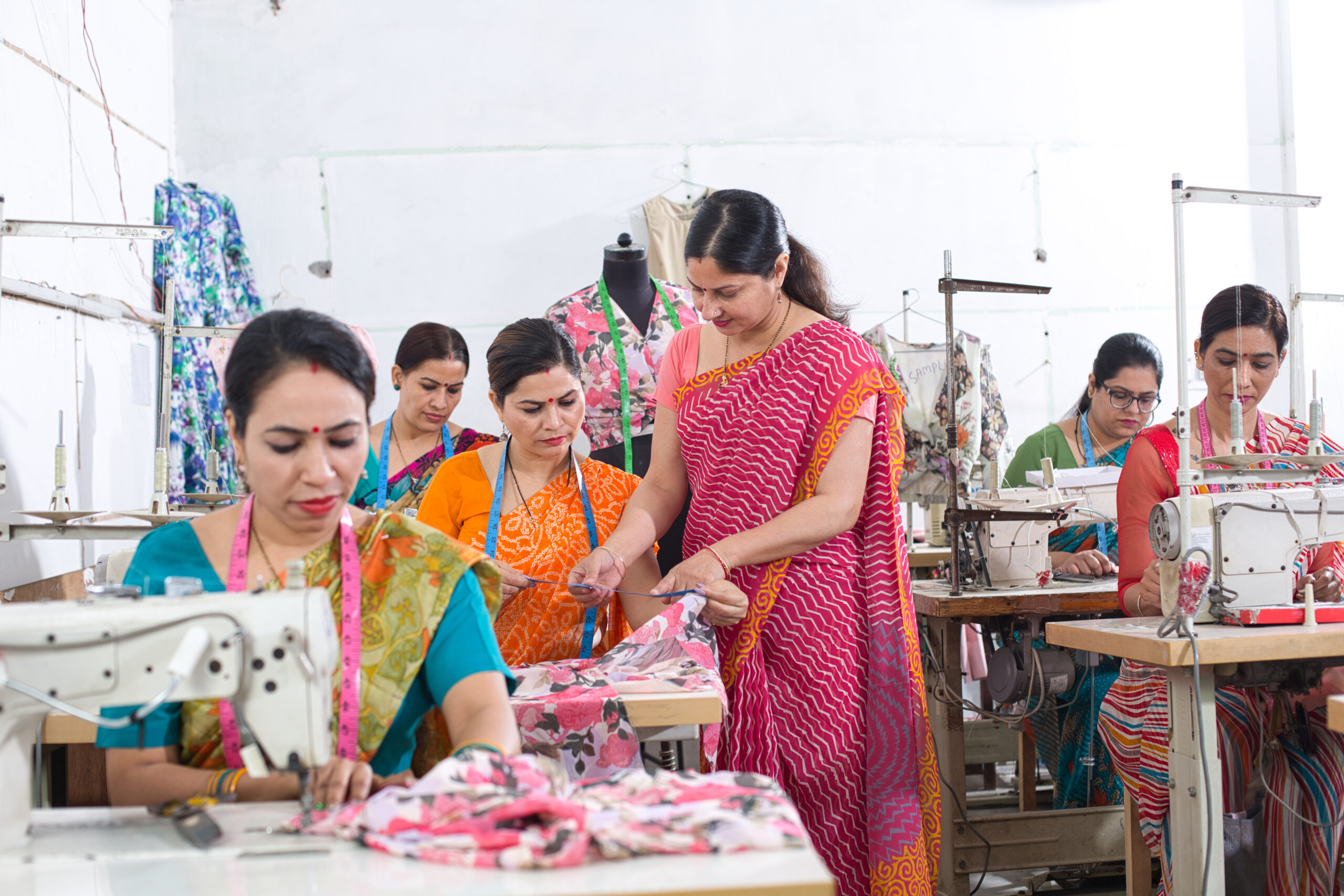The ILO’s most recent report on modern slavery and forced labor identified women workers as acutely vulnerable to human rights impacts in global supply chains.
The estimates show that women and girls are disproportionately affected by modern slavery, accounting for almost 29 million, or 71 percent of the overall total of workers. Women represent 99 per cent of the victims of forced labor in the commercial sex industry, while Walk Free estimates that 22 million people are living in a forced marriage, the majority of them women. These findings tell us that the vulnerability of women in the workplace goes beyond coercion of the individual, women are more likely to have their families threatened by abusers, and forms of physical and sexual coercion are more often wielded against women than men.
According to the ILO: “Forced labor in the private economy has an important gender dimension.” What this means is that labor abuses can and do cross gender lines. It also means labor abuses might not look exactly the same to men as they do to women, and vice versa. A joint report from Better Buying Institute and Ulula that reached 1,360 workers, 67% of whom were women, they found that, following Covid-19, women were more fearful of losing their jobs, more likely to receive salary reductions, and were more concerned that their working pay didn’t cover their daily expenses than men in the same factories. When companies are forced to adjust in times of upheaval, women often bear the brunt of crises. In some factory settings, women can earn 50% less than their male counterparts. To solve these problems, companies should integrate women-centric worker voice policies into their human rights due diligence practices.
Early proponents of stronger labor rights for women among buyers have opted for fair payment practices that promote equanimity between male workers and women workers. Worker engagement with Ulula’s survey showed that suppliers performed better across a range of indicators, such as avoiding salary reductions, on-time payment, working hour satisfaction, and so on.
Women-Centric Surveys: Ask the Right Questions, Reach the Right People
The gendered dimension of workplace human rights issues is too often unreported. A recent women-centric study by the International Center for Research on Women (ICRW), Ulula and another worker voice survey provider reached 1,813 workers in factories operated by household name brands in Vietnam and China. The survey proves how worker voice technology can shine a light on the issues faced by the female workforce in global supply chains. The project’s reach also demonstrates the scalability that digital HRDD solutions can provide, reaching women in the up and down the supply chain in a uniform manner, across jurisdictions.
The ICRW identified a key finding of the report: “[the] Value of women is captured by asking the right questions, and crafting these questions takes time and multiple rounds of careful iterations: collecting worker feedback is critical to getting questions right, and it’s important to contextualize.” If companies are to improve working conditions for women in supply chains, they’ll have to ask the right questions in women-centric surveys.
Digital and device-neutral worker feedback tools like surveys, broadcasts, alerts and grievance mechanisms grant companies access to workers whose circumstances might make them difficult to reach. These tools can also be tailored to suit the workers they’re trying to help. A tailored, anonymized approach is crucial for ensuring that women workers feel safe and free of judgement when reporting issues like sexual harassment and inappropriate behaviour. This way, companies create a safe space for women to engage with solutions and circumvent potentially biased, self reported accounts from managers and auditors. Support from digital providers allows suppliers to analyze survey results and tweak them, gaining the insight necessary for meaningful engagement and creating a safer, more equitable workplace for women.
Let Workers be your Eyes on the Ground
Ulula were commissioned to deploy their worker voice surveys for Beauty Advisers in South Asia – hired by labor agencies – to promote a global cosmetics beauty brand. The aim was to elicit feedback from the Beauty Advisers to assess fair labor practices.
Through a five stage risk assessment involving scoping, field research, interviews, a co-creation process and mobile survey deployment in the local language, Ulula were able to achieve an 80% participation rate and obtain valuable insight in line with the HRDD policies of their client. This high participation rate demonstrates how anonymized, multilingual, multichannel surveys can amplify women worker’s voices.
Ulula’s worker voice platform allowed them to gather data from deep in the company’s supply chain. They found that the majority of Beauty Advisers were satisfied with their jobs but that many didn’t have contracts and wouldn’t feel comfortable refusing overtime. Furthermore, just over 50% said they had witnessed some form of gendered workplace abuse.
These surveys can be tailored to match a company’s HRDD commitments, or to international standards for due diligence, meaning that all the data obtained is valuable, and demonstrates their commitment to HRDD. It also allows companies to get a clear picture of the HRDD risks in their supply chains, and to prioritize remedial action accordingly.
Tailored Engagement Through Worker Voice Tech
Strengthening women’s rights in the workplace requires a targeted, nuanced approach that asks the right questions to get the right answers. You can’t strengthen a group’s rights if you don’t know the extent to which they are being breached. Companies should identify and remove the barriers that women workers face when looking to engage with their employers as well as making sure that opportunities for engagement are tailored to their specific needs.
Worker voice technology gives companies the ability to gather the nuanced data they need to understand women’s experience in the workplace. At the same time, it eases engagement for women workers through anonymization, scalability, impartiality and democratized access to surveys.

